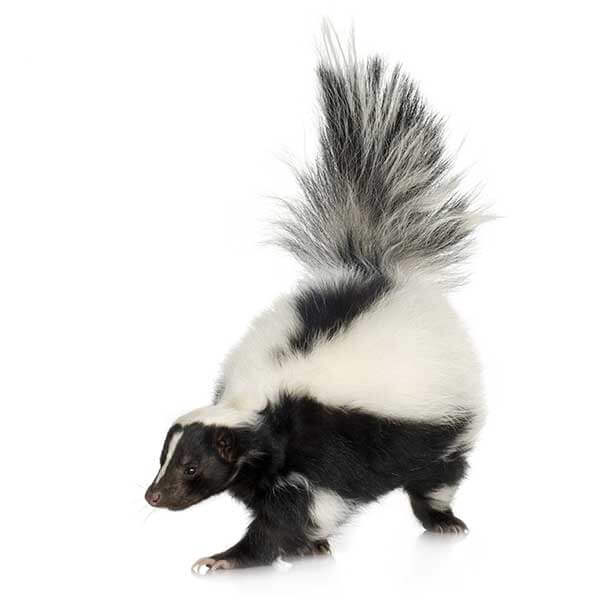Skunks in Suffolk County & Nassau County
The average skunk is about the size of an adult house cat, and its’ fur is mostly black with white on top of the head and neck. Skunks are found throughout the United States and are known to produce an oily, yellow sulfur-alcohol compound that contains sulfuric acid. This pungent liquid is stored in two separate scent glands located on each side of the anus and can be squirted accurately at targets as far as 6 to 10 feet away as a self-defense mechanism. The secretion is acrid enough to cause nausea and can produce severe burning and temporary blindness if it strikes the eyes.
Skunk Habitat
Skunks construct dens in burrows and will often use abandoned burrows dug by ground squirrels, foxes, or coyotes, enlarging them if necessary. In urban settings, they den under decks, porches, or beneath buildings. If other suitable dens are unavailable, skunks will burrow and construct dens. Skunks do not hibernate; but in regions with colder weather, they may congregate in communal dens during the winter. Skunks are attracted to residential areas by the availability of food, water, and shelter.
Skunk Behaviors, Threats, or Dangers
Skunks are primarily nocturnal animals and their activity around buildings may go unnoticed until one takes up occupancy beneath a porch, deck, slab foundation, or has an encounter with another animal, such as a dog. A pet that exhibits an offensive smell, is an indicator that a skunk may be nearby. Skunks have been found infected with an array of diseases, including rabies. If your pet has an encounter with a skunk, it should be seen by a veterinarian immediately. If you are having an issue with skunks, it is best to consult a professional wildlife control company for removal.
Need help with Skunk control?
Need Expert Advice?
Leave your information below and we'll be in touch soon!
"*" indicates required fields
*During normal business hours. After hours calls will be returned the next business day.





